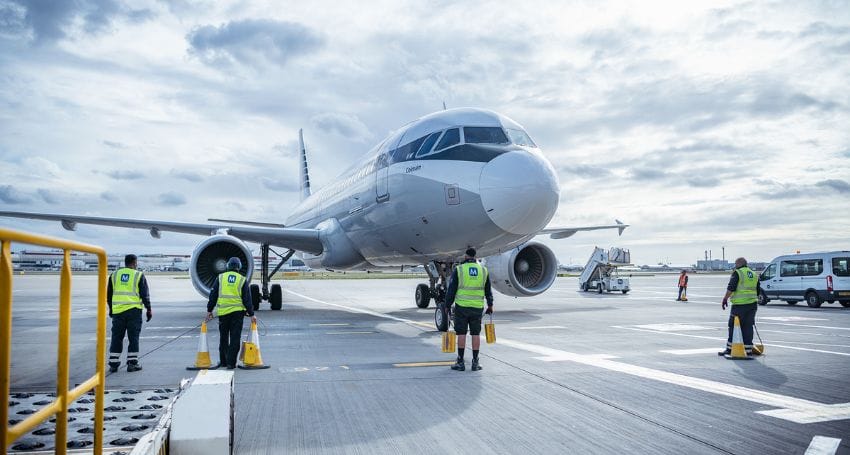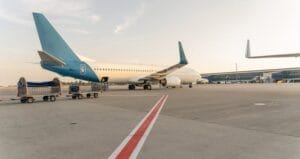Introduction to Aviation Services
Flying is a remarkable feat of engineering that has become an integral part of our world. Behind each flight, a wide spectrum of aviation services makes it possible. Aviation services refer to the various activities, assistance, operations, and support services that ensure the efficient and safe functioning of the aviation industry.
Aviation Services: An Industrial Overview
If we look at the history of aviation services are critical to the functioning of both commercial and civil aviation sectors. They range from passenger services, aircraft maintenance, inspection, airport construction, equipment provision, and various operational activities. The structure of these services may differ from one country to another, yet they all operate under applicable international standards.

Commercial Aviation
In commercial aviation, services include transporting passengers and goods from one location to another. These services ensure that all aspects of a flight operation run smoothly, from the ticketing system to baggage handling, in-flight catering, and more.
Civil Aviation
On the other hand, civil aviation services involve non-commercial aviation activities such as private aviation, aviation clubs, and flying schools. They are also responsible for establishing and maintaining air traffic control to ensure safe and orderly air traffic flow.
Aviation Support Services
Many support services work behind the scenes, providing the necessary assistance to keep aircraft flying. These services encompass weather forecasting, emergency response, logistics, fueling, and ground handling. They also play a vital role in ensuring high-quality passenger services, including check-in, security, and customer service.
Aircraft Maintenance and Inspection
Aviation services ‘ primary goal is ensuring an aircraft’s safety and optimal operation. Regular aircraft maintenance and inspection form the core of these services. They involve thorough checks of an aircraft’s structure and equipment, ranging from routine inspections to more in-depth preventive maintenance.
This rigorous process, carried out by certified technicians, includes inspecting engines, controls, air pressurization systems, and other vital components. By doing so, potential issues can be identified and rectified before they escalate into more significant problems.

Airport Construction and Equipment Provision
Establishing an airport involves numerous complex activities, from land acquisition to construction, testing, and opening to the public. This process is carefully structured, ensuring the construction meets international standards.
The airport’s infrastructure plays a crucial role in its operation. It must accommodate the varying types of aircraft and provide space for hangars, control towers, runways, and passenger terminals. Beyond construction, equipment provision is another vital component of aviation services. This encompasses various machinery and vehicles used for aircraft maintenance, ground handling, safety, and emergency services.

Integrity in Flight Training
Integrity in flight training is of utmost importance to ensure the safety and competency of aspiring pilots. It encompasses a set of principles and ethical standards that guide flight instructors and aviation training organizations in delivering quality and reliable training. Maintaining integrity in flight training involves adhering to established regulations, promoting transparency in communication, and upholding the highest standards of professionalism. This includes providing accurate and up-to-date information, conducting fair assessments, and fostering a culture of honesty and accountability. By prioritizing integrity in flight training, the aviation industry can cultivate a trustworthy and reliable cadre of pilots, contributing to safer skies for all.
The Growing Expanse of Aviation Services
Aviation services evolve, adopting the latest technological advancements for improved efficiency and safety. The increased reliance on digital technology has resulted in enhanced aircraft maintenance practices, streamlined operations, and elevated passenger experiences.
Moreover, applying sustainable practices is becoming more prominent in aviation services. This shift involves using cleaner energy sources, waste management, and noise reduction methods, significantly reducing the industry’s environmental footprint.
Conclusion: The Backbone of the Aviation Industry
In conclusion, aviation services are the backbone of the aviation industry, facilitating a myriad of activities that enable safe, efficient, and high-quality air travel. From aircraft maintenance and inspection to airport construction and equipment provision, these services play a pivotal role in establishing the robust structure of the aviation sector.
The continuous enhancement of these services is vital for the aviation industry’s growth. With the integration of modern technologies and sustainable practices, aviation services will continue to soar, supporting the ever-evolving demands of air travel.




